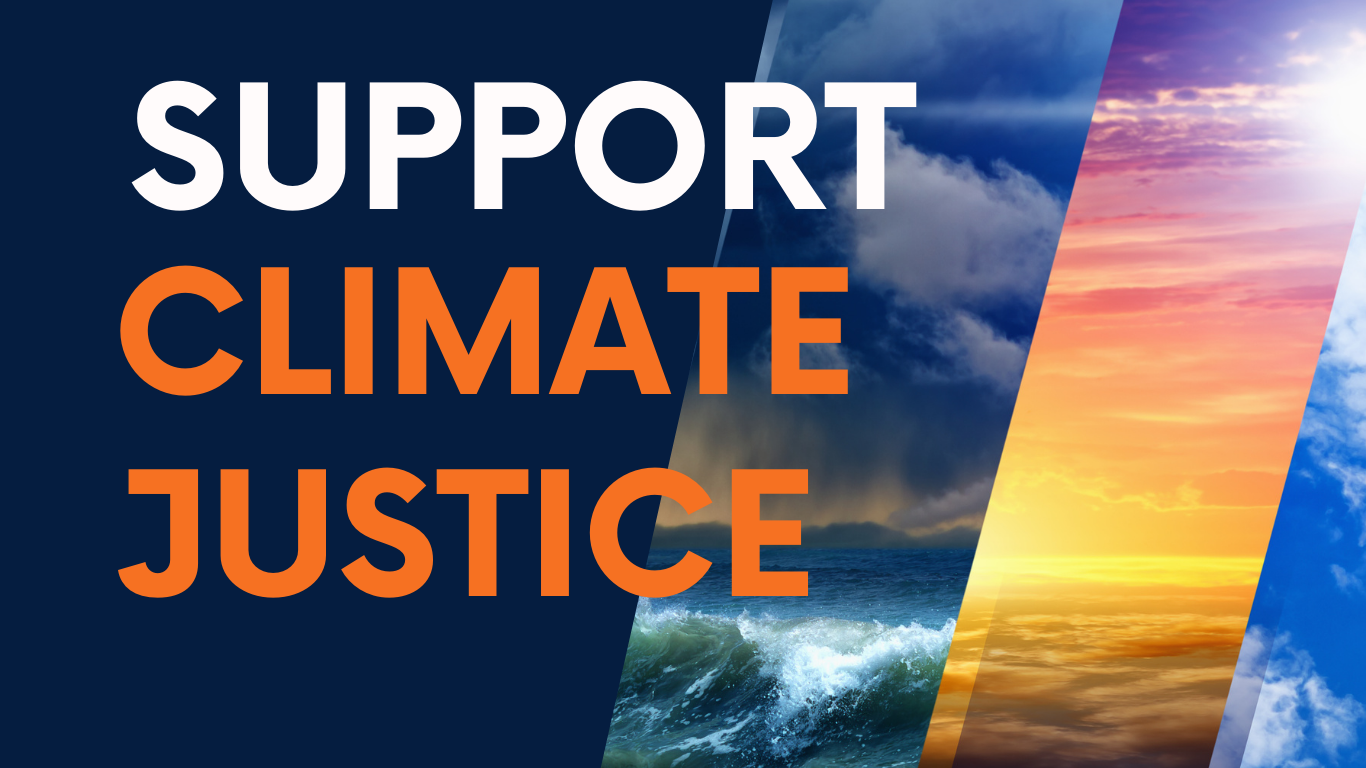By Tecla Fontenard, Communications Specialist
I often wonder whether climate change talks at COPs are comparable to historical debates about the call for the abolition of slavery. The more I listen to debates on climate change, which intensify at COP regarding climate issues, the more I notice the use of radical language by negotiators and leaders. Terms like “climate justice,” “climate finance,” “climate catastrophe,” and “climate crisis” seem to dominate the conversation. This increasing rhetoric gives me a sense of foreboding, reminiscent of a bygone era from 200 years ago.
Though centuries apart, both debates share a common theme: the conflict between human progress and moral responsibility. In each case, powerful interests resist change, while an increasing number of voices call for a fairer and more equitable future.
I can’t help but feel that the urgency and scale of the climate crisis, combined with the political gridlock, strongly echo the heated debates that once surrounded slavery.
Back then, the abolition of slavery was a contentious issue that divided nations, communities, and even families. The debates were intense – filled with passionate arguments and moral imperatives. Similarly, today’s climate change discussions are fraught with urgency and high stakes. Leaders and activists use strong, often alarming language to convey the gravity of the situation, emphasizing the need for immediate and decisive action to prevent irreversible damage to our planet.
At COP27 in Glasgow, U.K. UN Secretary-General Antonio Guterres said: “We are on a highway to climate hell with our foot on the accelerator.” Recognized as one of the most influential speakers on climate change, he utilizes his platform to advocate for urgent and meaningful global action. However, his predominant approach is characterized by the use of highly provocative language when discussing climate issues. The same fiery language can be observed in discussions about slavery.
Take Harriet Tubman, an American abolitionist born into slavery in 1822. She described slavery as “the next thing to hell.” – the same powerful metaphor to convey a sense of doom. After escaping from slavery, Tubman devoted her life to its abolition. She is recognized as the first woman in American history to plan and lead a military raid.
Just as the abolitionists faced fierce opposition from those with vested interests in maintaining the status quo, climate activists today encounter resistance from industries and political entities that benefit from fossil fuels and other environmentally harmful practices. As climate debates mount, fossil fuel giants are attending COP in historical numbers, never seen before 2023.
At COP28 in Dubai and COP29 in Azerbaijan, two well-known oil-dependent nations, more than 2,456 fossil fuel representatives descended on COP 28 and 1,773 on COP29. This unprecedented presence demonstrates the significant influence of the fossil fuel industry on global climate policy amidst growing calls for a rapid transition to renewable energy sources.
I am profoundly struck by the compelling parallels between today’s battle to end the fossil fuel era and the historic fight to abolish the system of slavery.
Both movements are rooted in a heartfelt sense of justice and a desire to create a more equitable and sustainable world. And, in both instances, strong economic interests have resisted change, using tactics of delay, denial, and misinformation. Just as the holders of enslaved persons argued for the economic necessity of slavery, fossil fuel companies have continued to defend their industry, citing job creation and energy security.
This dominance of fossil fuel interests highlights the challenges in achieving ambitious climate goals. At the same time, Small Island Developing States (SIDs) around the world are hoping for a change in moral consciousness.
“The world is addicted to fossil fuels, and this addiction is slowly killing us. We, the small island states, are on the frontlines of this crisis, bearing the brunt of the impacts while contributing the least to the problem. It is time for a global awakening, a moral reckoning, where the pursuit of profit no longer outweighs the preservation of our planet,” Mia Mottley, Prime Minister of Barbados demanded in one of her many speeches to the United Nations.
This brings to the fore that the language used in both eras reflects the deep emotional and ethical convictions of the people involved. 16th President of the USA, Abraham Lincoln intensely opposed slavery to the point of fury. Even before he was elected President, in a letter to Henry Pierce on April 6, 1859, he wrote, “This is a world of compensations; and he who would be no slave, must consent to have no slave. Those who deny freedom to others, deserve it not for themselves; and, under a just God, can not long retain it.” From his elections in 1860 to 1865, Lincoln worked relentlessly to end slavery, creating a legacy for the civil and social freedom of African Americans.
Lincoln and others during the 18th and 19th centuries spoke of the moral imperative to end human suffering and uphold the sanctity of human dignity. In the 21st century, climate advocates are expecting a moral duty to protect our planet and ensure a livable future for all its inhabitants. The sense of urgency, the call for justice, and the demand for systemic change resonate across the centuries, highlighting the enduring struggle for a more just and sustainable world.
Ask Barbados’ Prime Minister Mia Mottley, a strong advocate for climate justice in the Caribbean, who has passionately emphasized the urgent need for action. She stated, “Our world knows what it is gambling with, and if we don’t control this fire, it will burn us all down.”
So. What is the value of human life and the health of our planet?
As we confront the consequences of our actions, history provides both cautionary tales and inspiring examples of our capacity for change. From the abolition of slavery to the civil rights movement, we have seen how collective action and moral courage can overcome seemingly insurmountable challenges. Similarly, the growing global movement for climate action demonstrates that we can unite to protect our planet and ensure a sustainable world for future generations. By learning from the past and committing to bold, decisive action, we can address the climate crisis and build a healthier, more equitable world. But will we rise to the occasion?







